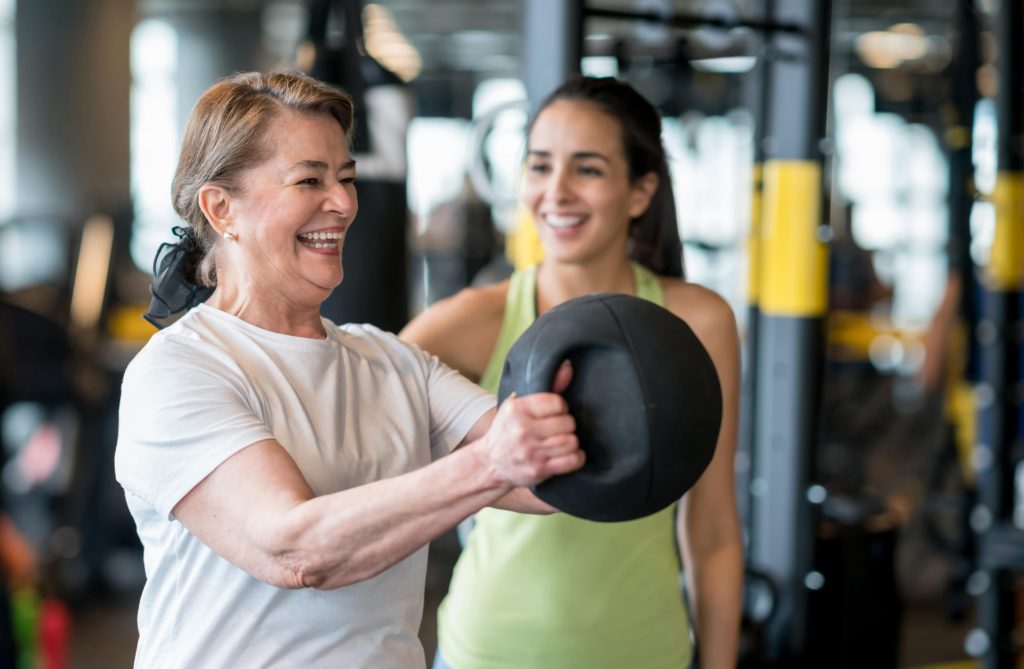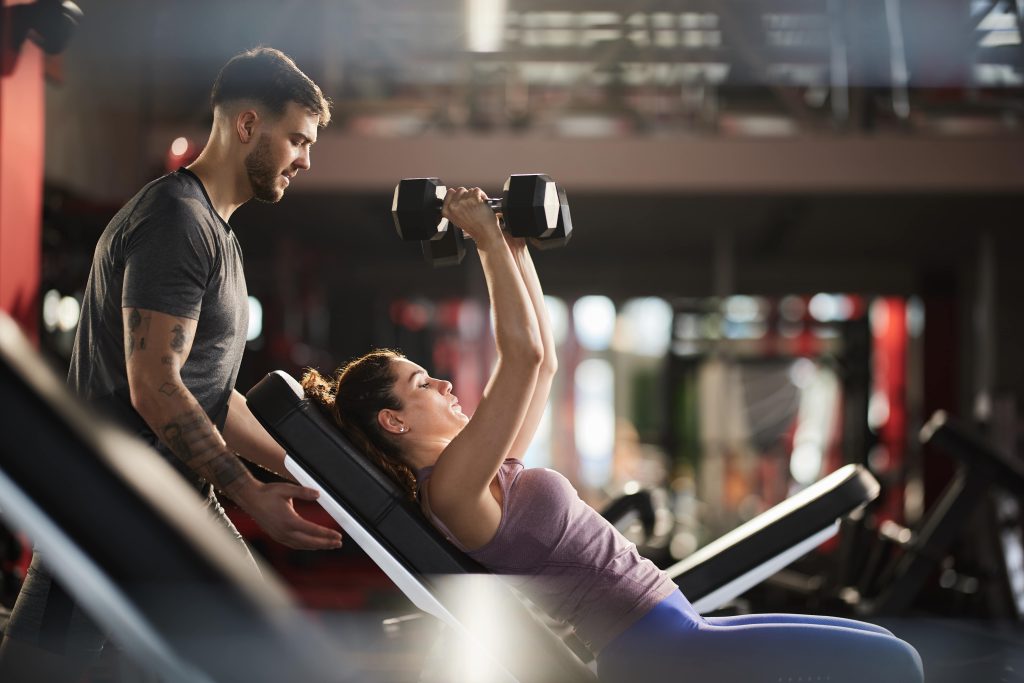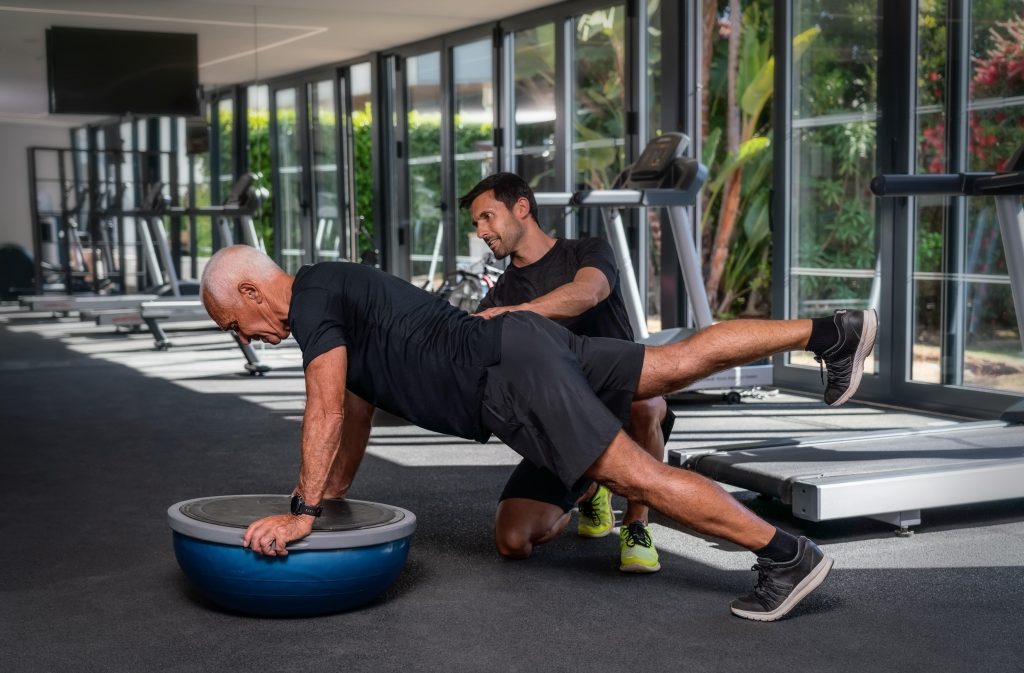A recent study found that nearly half of gym users have experienced an injury while at the gym. Having a first aid qualification as a personal trainer could mean that you’re able to help your clients should they experience an accident during training.
Read our blog below to find out if personal trainers need first aid training, as well as what’s included in first aid training, why it’s important, and what to consider before getting qualified.

Do personal trainers need first aid training?
The short answer is no; it’s not mandatory for personal trainers to have first aid training. The only mandatory qualifications to become a personal trainer are a Level 2 Gym Instructor and a Level 3 Personal Training qualification.
However, there are several benefits to having a first aid qualification, which we will cover later in this blog.
What’s included in first aid training?
What’s included in the first aid training you receive depends on the course you choose. St John’s Ambulance offers Emergency First Aid at Work, First Aid at Work, and Defibrillator training courses, which could all be useful for personal trainers.
First aid courses can help you learn about topics such as adult resuscitation, bone, muscle, and joint injuries, chest pains, fainting, and head injuries.
What are the benefits of having first aid training as a personal trainer?
There are several benefits to having first aid training in any profession. However, as personal trainers work in environments where clients are exercising and using heavy equipment, having a first aid qualification can be particularly useful.
In our list below, we’ve picked out 4 key benefits of first aid training for personal trainers so you can decide whether to add first aid to your list of qualifications.
1. You could help a client when they’re injured, or even save a life
Of course, the most important benefit of having first aid training is that you’ll be able to help your clients should they injure themselves during training. Knowing how to perform CPR could even help save a person’s life.
2. It could help give you peace of mind
Knowing that you can help in an emergency could give you better peace of mind, allowing you to concentrate on training your clients.
You can even find first aid courses tailored to personal trainers, with some providers offering the ability to request additional training if you have something, in particular, you wish to cover as part of the assessment.

3. You’ll stand out from other candidates
In addition to the two mandatory qualifications needed to become a personal trainer, having a first aid qualification on your CV when you’re looking for a new role can help you stand out from the crowd.
Gyms are also legally required to have at least one qualified first aider on site at any one time, so if they’re looking for a replacement with this qualification, it may be a requirement in the job description.
4. It could help you attract more clients
Having a first aid qualification won’t just be attractive to prospective employers, either. You may find that some of your clients are looking for a personal trainer with first aid training for their own peace of mind, or if they have a health condition that may be affected by their training.
If you are ever in a situation where you are the only fitness professional present, you are also required to be first aid trained, so it’s particularly important for those who do freelance work, too.
If you’re interested in expanding your expertise, companies like OriGym offer specialist courses for different health conditions, such as its Level 4 Diabetes Control and Weight Management course.
What to consider before getting first aid training as a personal trainer
If you choose to get a first aid qualification, it’s a good idea to ensure you’re aware of your responsibilities per the law.
As a first aider, if you choose to help someone in an emergency and you are found to be negligent (by causing further injury that they wouldn’t have otherwise sustained or making the injury worse), you could be sued.
For example, if you were to provide CPR to a person who didn’t need it, and subsequently caused an injury such as a broken rib, you could be at risk of a negligence claim being made against you. It’s also worth noting that you are not legally required to provide first aid as a first aider, but you should help in another way, such as calling 999 if necessary.
Therefore, choosing to take a first aid course can be a big responsibility and should be treated as such. You should only provide first aid if you feel you can do so safely and get further help from the emergency services when needed.

Specialist personal trainer insurance through Insure4Sport
As a personal trainer, you may already be aware of how important insurance can be for you when operating in a professional environment. Even if you are employed by a gym with its own insurance in place, you may still be required to have your own additional cover, so you should always check this with your employer.
Whether your equipment gets damaged or you or a client suffers an injury, specialist personal trainer insurance can give you the peace of mind you need.
Specialist insurance for personal trainers and fitness instructors through Insure4Sport can help protect you against third-party claims, theft and loss of or damage to any sports equipment you own, and even loss of earnings should you suffer a personal injury that results in your inability to work.
Learn more about specialist personal trainer insurance through Insure4Sport here, or get a quick quote today.




Leave a Reply